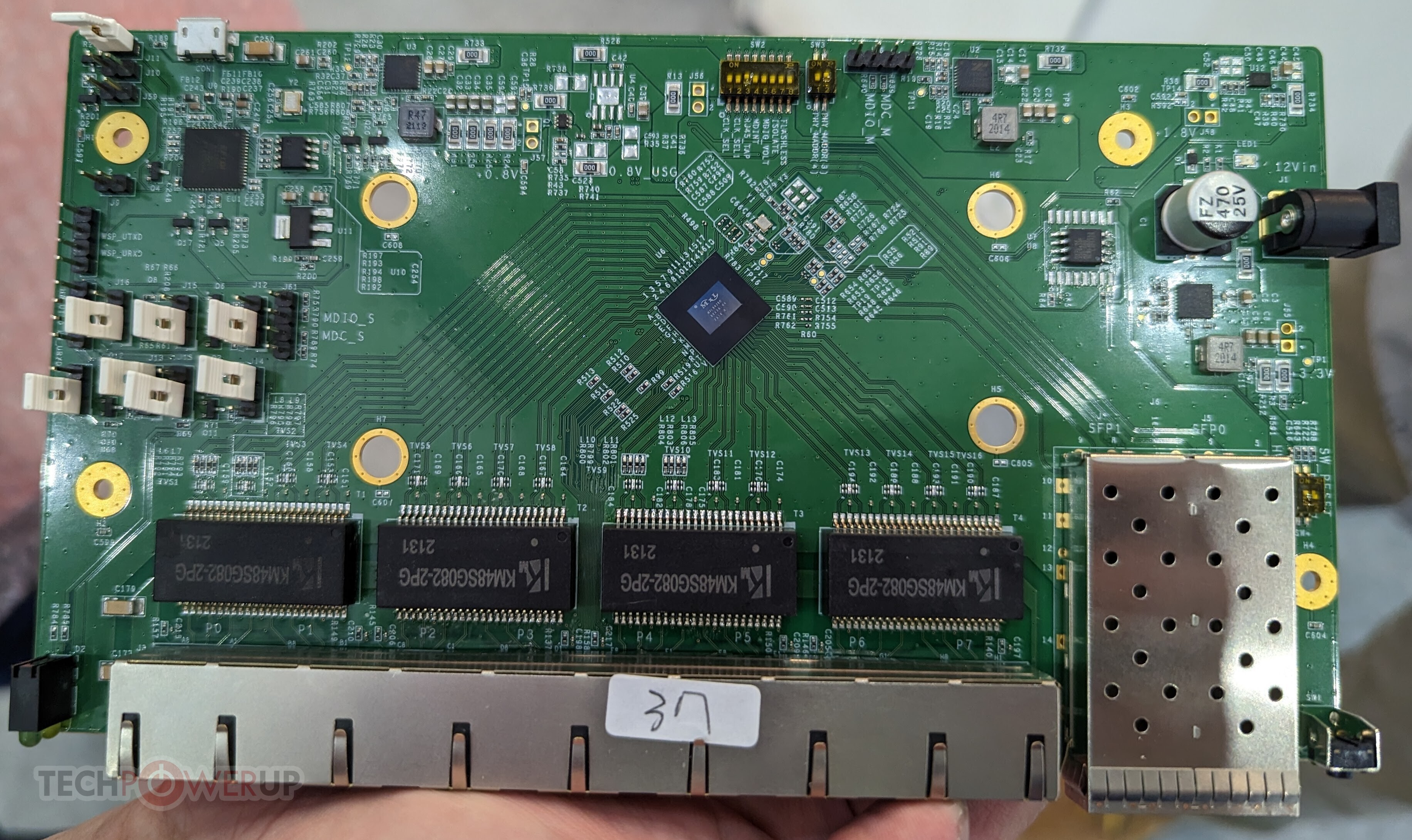QNAP Systems, Inc., a leading computing, networking, and storage solutions innovator, today launched the QSW-1108-8T-R2, a 8-port Multi-Gig unmanaged switch that supports 2.5GbE high-speed connectivity. Delivering a smooth and stable wired network for Wi-Fi 6/6E, the QSW-1108-8T-R2 also enhances file backup, media streaming, and gaming experiences. With a compact, fanless design, it fits easily into any workplace, making it effortless to build an efficient desktop networking environment.
"The QSW-1108-8T-R2 is an affordable option for upgrading to 2.5GbE," said Ronald Hsu, Product Manager of QNAP, adding "Its small form factor, 30% smaller than previous models, makes it easy to connect multiple computers, NAS devices, and gaming consoles, while keeping your home or studio network clean and organized."



The QSW-1108-8T-R2 offers efficient 2.5GbE network transmission. Featuring eight 2.5GbE ports, the QSW-1108-8T-R2 complies with the NBASE-T standard to offer speeds of 2.5G, 1G, and 100M, providing a total switching capacity of up to 40 Gbps. It supports 12 KB Jumbo Frame and IEEE 802.3x flow control to significantly improve large file transfer efficiency and reduce packet loss, ideal for handling large-capacity data and high-resolution video files. The 4K MAC Address Table ensures precise data transmission and efficiency when transferring data between devices. Built-in network loop detection and blocking features can instantly lock down looped network ports to prevent potential network disruptions.
The compact, desktop-friendly QSW-1108-8T-R2 operates silently thanks to its fanless design and efficient heat dissipation. It is certified for EEE energy-efficient operation and Class B electromagnetic interference (EMI), ensuring both performance and eco-consciousness. Clear front-panel LED indicators and rear-facing ports help maintain tidy cabling in indoor setups. As an unmanaged switch, the QSW-1108-8T-R2 requires no complex configuration. Its Auto Negotiation feature automatically detects and adjusts to the optimal connection speed for each device. It also supports 2.5GbE over existing CAT 5e cables, reducing upgrade time and cost.

View at TechPowerUp Main Site | Source
"The QSW-1108-8T-R2 is an affordable option for upgrading to 2.5GbE," said Ronald Hsu, Product Manager of QNAP, adding "Its small form factor, 30% smaller than previous models, makes it easy to connect multiple computers, NAS devices, and gaming consoles, while keeping your home or studio network clean and organized."



The QSW-1108-8T-R2 offers efficient 2.5GbE network transmission. Featuring eight 2.5GbE ports, the QSW-1108-8T-R2 complies with the NBASE-T standard to offer speeds of 2.5G, 1G, and 100M, providing a total switching capacity of up to 40 Gbps. It supports 12 KB Jumbo Frame and IEEE 802.3x flow control to significantly improve large file transfer efficiency and reduce packet loss, ideal for handling large-capacity data and high-resolution video files. The 4K MAC Address Table ensures precise data transmission and efficiency when transferring data between devices. Built-in network loop detection and blocking features can instantly lock down looped network ports to prevent potential network disruptions.
The compact, desktop-friendly QSW-1108-8T-R2 operates silently thanks to its fanless design and efficient heat dissipation. It is certified for EEE energy-efficient operation and Class B electromagnetic interference (EMI), ensuring both performance and eco-consciousness. Clear front-panel LED indicators and rear-facing ports help maintain tidy cabling in indoor setups. As an unmanaged switch, the QSW-1108-8T-R2 requires no complex configuration. Its Auto Negotiation feature automatically detects and adjusts to the optimal connection speed for each device. It also supports 2.5GbE over existing CAT 5e cables, reducing upgrade time and cost.

View at TechPowerUp Main Site | Source





